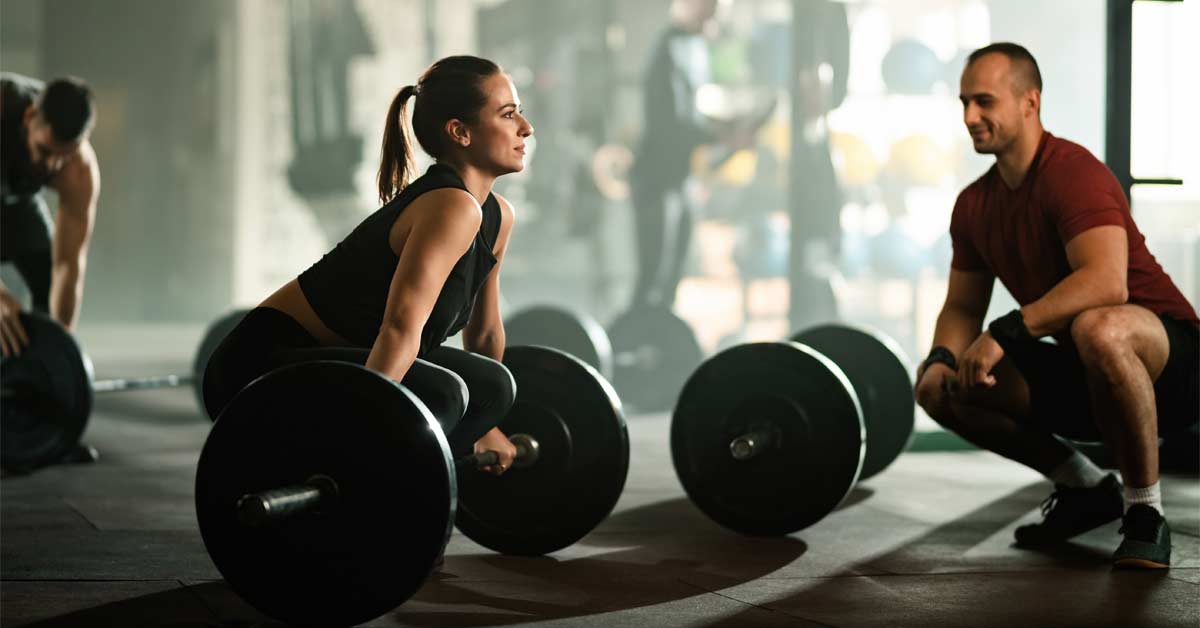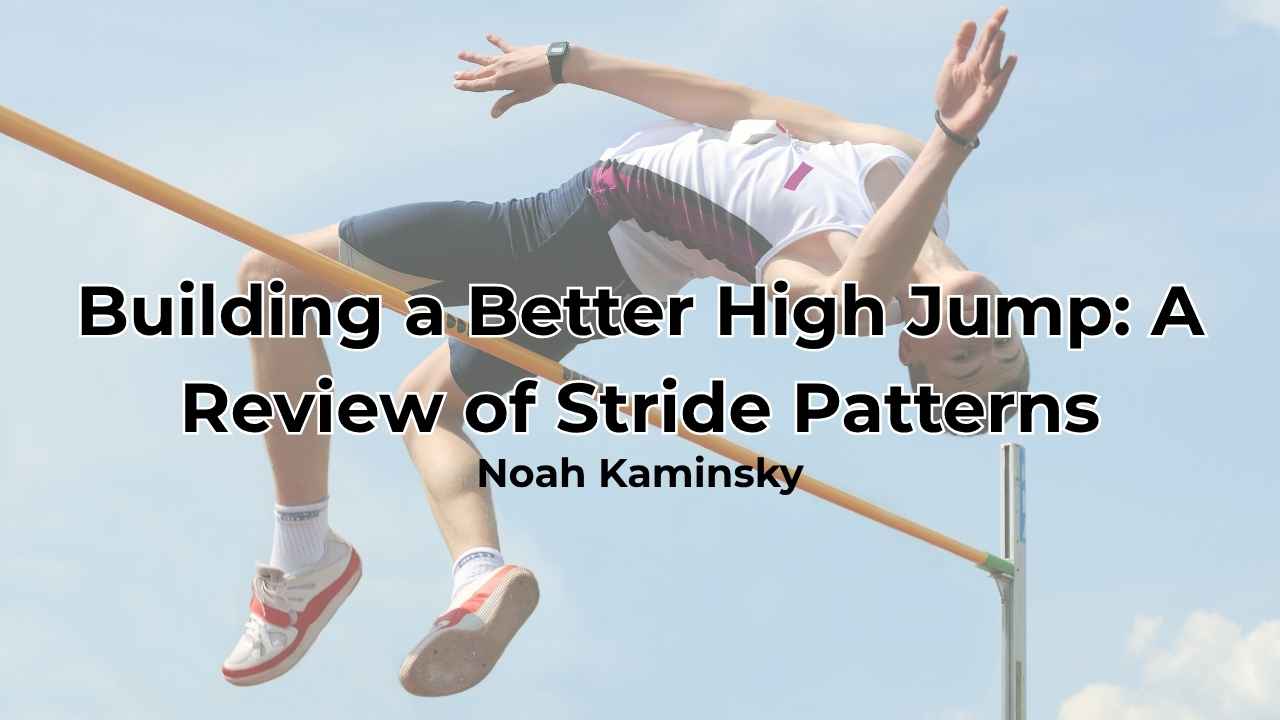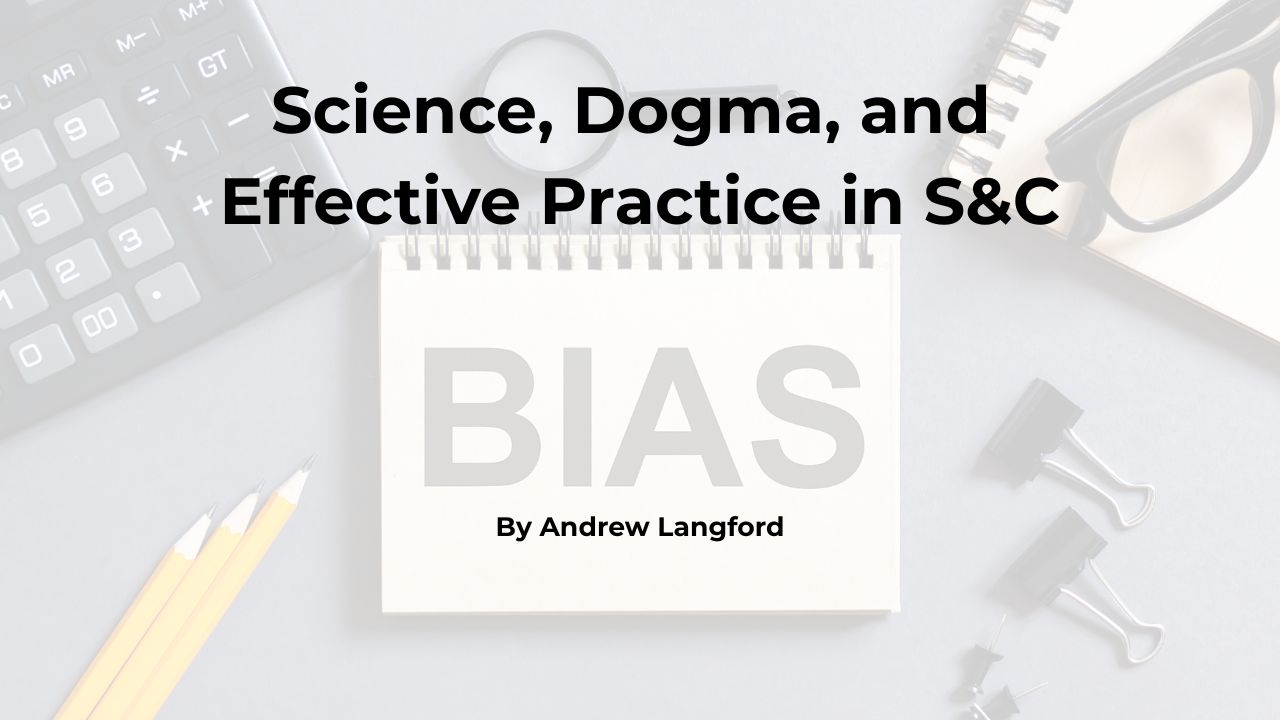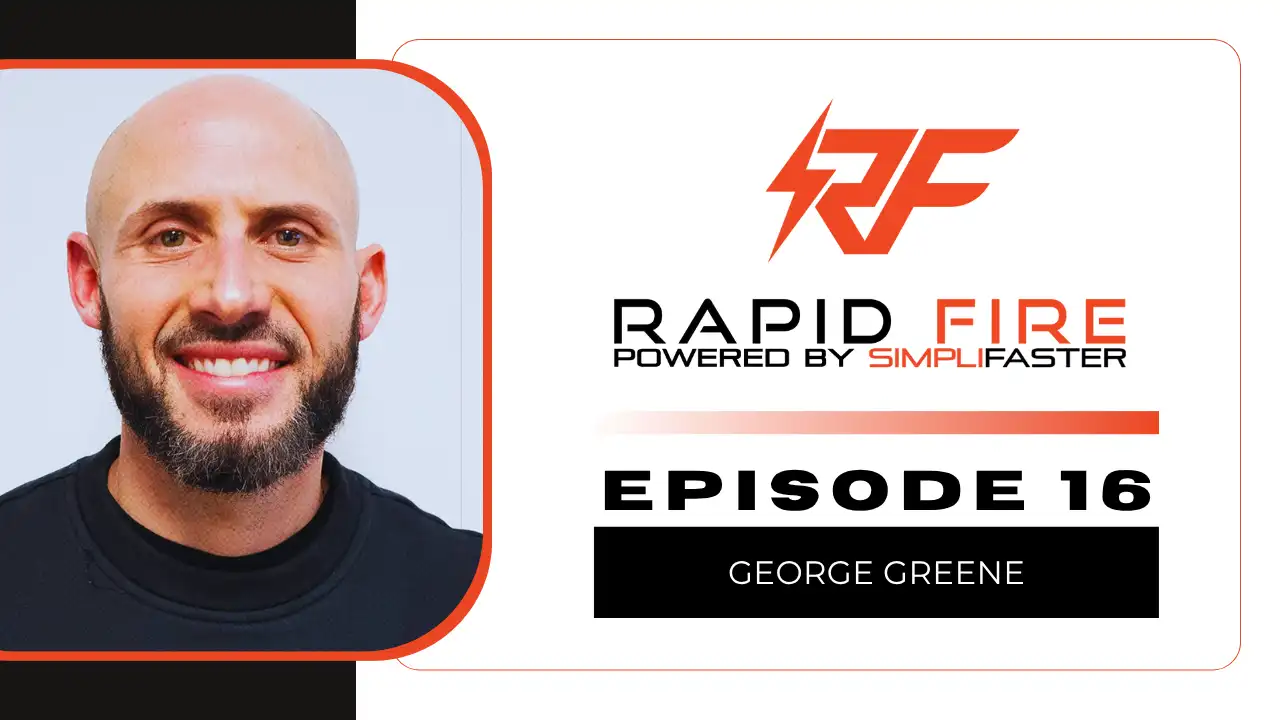Your first year as a coach, whether as a graduate assistant or an intern, is a unique and challenging one. Often that struggle is due to one or more of the reasons below:
- You just finished playing collegiately and therefore still see yourself as an athlete.
- You have a hard time balancing your personal relationships with the athletes and your professional responsibility to instruct and educate.
- You excelled at your sport and feel you are already a good coach.
- You excelled in the weight room and feel you are already a good strength and conditioning coach.
There is a lot of information on social media these days about improving yourself as a coach, but little out there on how to begin that process in your first year in the job. I wrote this article to give you a greater understanding of what it is like to be a coach and how to get the most from your graduate assistantship/internship.
1. Have Great Time Management
Being in graduate school and working full-time as a coach isn’t easy! As an international student, I had to take three classes (nine hours per week) and was given three teams to coach during my first semester. The amount of time I had to spend doing schoolwork and doing my job was overbearing at times.
When you have sessions as early as 6 a.m. and don’t get back to your dorm room after night class until 9 p.m., it can be tough. Much like our athletes who juggle their time between classes, practices, lifts, and social activities, your schedule will be tough but doable with the correct time management.
A piece of advice: the sooner you set your schedule and organize your time between the office, classroom, and library, the easier the transition into grad school and coaching becomes. Any extended periods of downtime you have in the office should be seen as opportunities to get some schoolwork or programming done, or to engage in some structured learning (like reading an article or watching a presentation).
You ask your athletes to get 1% better every day, manage their time effectively in order to get adequate sleep, and eat enough food to stay energized and recover from practice, but you have to walk the talk too! Buy a planner and get organized.
Buy a planner and get organized, says @SCoach_Aldo. Share on X2. Be Vulnerable
When I first started as a graduate assistant (GA) strength and conditioning coach, I didn’t ask the head strength coach anything. I didn’t ask what he did with the teams before I got them; what he thought about my program; what he thought about the way I was training them; what he thought about my periodization model, loading, exercise selections, etc.
There were two reasons for this: pride and fear. He had been in the profession for four years and, even though I had previously been a personal trainer in England, this was my first semester training American collegiate teams.
Did I need some help and guidance? Absolutely! But I avoided asking as I didn’t want him thinking I didn’t know what I was doing; it was this threat of perceived ignorance that stopped me from asking for help.
After two months or so I finally asked for his help only to discover what will surely come as no surprise: he was actually very helpful and supportive when answering my questions, and gave me crucial insight and knowledge I could use to improve my programs. Needless to say, from that point on I talked to him on a daily basis about my athletes and our programs.
The biggest problem I have experienced and see other GAs struggle with is being vulnerable. We are too proud and/or scared to make mistakes. But this is how we learn!
There are countless stories of famous inventors and athletes who made many mistakes in their careers, but they learned from them and became better because of this failure and learning process. Don’t be afraid to put yourself out there and ask your head coach something you aren’t sure of. The likelihood is they will respect you more for asking.
Don’t be afraid to put yourself out there and ask your head coach something you aren’t sure of, says @SCoach_Aldo. Share on X3. Ask Specific Questions
If you ask the coaches you work for broad, wide-reaching questions such as how they condition the team or how important nutrition is for athletic performance, that can actually be counterproductive! Everyone is busy, time is precious, and interrupting a supervisor’s thought process to ask a broad question isn’t ideal. Asking the right question is a skill, and focusing on specific, well-timed questions can be a gamechanger for a GA/intern’s relationship with their supervisors.
Pre-session, when everything is set up and the athletes aren’t in yet, is a great time to ask these questions; mid-lift is not. This distinction might sound obvious, but when I was an intern often I wanted the answers to my questions immediately.
For example, asking about an athlete’s power clean form mid-session isn’t the right time. That’s the time to listen to the coaches around you, to hear their coaching cues and the individual feedback they give the athletes, and to write all of these points down.
After the session is when you can get the notepad out, go back to your original questions, and ask the coaches. They will be impressed that you wrote down their cues and took the care to even have a notepad and pen, and will be grateful you didn’t ask them the questions when they were trying to coach multiple athletes at once.
Timing of questions is crucial—you want the coaches’ best answer so you have to know the best time to ask.
4. Build a Great Relationship With Athletic Trainers
Strength coaches and athletic trainers (ATs) work towards the same goal: both want their athletes to be high-performing, injury-free, and available to play every game. For preventing and rehabilitating injuries, a strength coach and AT overlap in their job descriptions. Therefore, communication and cooperation with the AT staff is crucial in this process to ensure the best care for the athlete.
Injured players often have training contraindications, which means a modified strength and conditioning program. There needs to be clarity and a specific purpose for these sessions in order for the athlete to maximize their time in the weight room. Great communication and similar training philosophies between a strength coach and an athletic trainer can really set your athletic performance model apart from others.
My AT and I are constantly sharing articles, screenshots, podcasts, and Twitter and Instagram links with each other—iron sharpens iron. You will likely share a room with this person on the road, spend a lot of time together at practices, and will both come up with the most appropriate tests for your athletes when testing week rolls around.
If you have a data tracking system (we use Kinexon at Furman), having your AT take an active role in this is crucial. We text our head coach every day with a report on what we saw from the data at practice. If the relationship between a strength coach and AT isn’t healthy, then everything they do will be sub-optimal.
As a young strength coach, your ATs should be a constant source of information. I was fortunate at the University of Alabama in Huntsville because some of the ATs were CSCS certified, which made conversations about programs, requirements of the athlete in the weight room, and return-to-play protocols that much easier.
I’m entering my sixth year as a strength and conditioning coach in the US, and I’ve realized that this relationship is as important as the relationship you have with your head coach and players, so make sure it’s a healthy one!
5. Learn From All Your School Classes
In some cases, the Master’s program you choose will be directly related to the coaching field you are working in: for example, a Master’s in Exercise Science, Coaching, or Strength and Conditioning.
But this isn’t always the case. I earned a Master’s in Management with a focus on Human Resource Management, but my main focus was pursuing a career in strength and conditioning coaching. Even though I wasn’t passionate about 80% of the classes I took, some of them were brilliant for developing my coaching philosophy and role as a strength coach.
I took a leadership class and my professor was one of the best public speakers and educators I ever had in college. Thanks to his class, I developed a greater awareness of the type of leader I was and the various class projects that semester really challenged me to get out of my comfort zone and embrace public speaking. Even though your master’s may or may not be relevant to your job and career path, there are still opportunities to learn as a coach.
Even though your master’s may or may not be relevant to your job and career path, there are still opportunities to learn as a coach, says @SCoach_Aldo. Share on XYou will likely find that there are other GAs in your classes. Use that as an opportunity to get to know them. I had various sport coach GAs in my classes who I still know, one of whom is now in the same conference as me and one who is the head soccer coach at the same school we graduated from.
6. Have an Insatiable Appetite for Learning
Learn, learn, learn! Before I had the GA coaching position, I thought I knew what it meant to be a coach. That first year showed me how much I needed to learn if I wanted to really make an impact in this profession.
My appetite for learning is as strong as ever; the imposter syndrome still keeps me on edge and I’m grateful for it. Learning is fun when it’s your passion and you know that knowledge will positively impact people.
Once your studies are done for the semester and your finals week is over, use that as a great opportunity to finally read what you want to read, study what you want to study, and geek out over training articles and continued professional education content.
It’s also a great time for reflection: look back on the semester with your teams, assess how you did, and ask your head strength coach and head coach for feedback. Seek out this information, the truth will always make you a better person and coach.
7. Manage Your Money
If you are working as an intern and getting paid, you are in the minority and you should cherish every dollar you get. Internships and graduate assistant jobs are a time when you are working to gain experience and learn, not to be paid for being a novice and having no experience in the field.
You have to go into these roles with humility and recognize that you can’t bemoan the fact that you are working for free because you have nothing to offer. You are at the bottom of the food chain and your job is to assist in any way you can. The same goes for any industry: an internship is phase one and you have to earn the right to get paid for skills that you are acquiring.
So my advice to a graduate assistant coach or intern is to manage your money very carefully. Sleep on a buddy’s couch, ask for a meal plan, pack your own lunches rather than eating out because it’s convenient, and ask if the facility has a nutrition station that is available to you.
I was given three shirts and two shorts as a summer intern at a Division I school, and mid-week laundry at my buddy’s house was the norm. I wore those shirts out but didn’t ask for more gear because I wanted to earn it and I knew being an intern was a unique period in my career. I’m a firm believer that you’ll earn what you earn; phase one is about survival, not accumulating disposable income.
8. Turn Your Social Media Into an Educational Tool
The days of posting pictures of you partying are gone. You’re a coach now, so you must see yourself as a working professional and your social media as an online resume. I’m not saying you suddenly need to post pictures of the books you’re reading, leadership quotes you like, or videos of your squats, or even that you can’t post anything personal.
However, you must be more aware of who your audience is now. If your profile is public, I can guarantee your new athletes will look at your profile, as well as your coaches and administrators. Make sure there’s no current content that could immediately jeopardize your position, and from here on out: be aware of your audience and act accordingly when deciding what to post.
Taking inventory of who you follow is also important. As you progress in your career you will start to seek out coaches you admire and follow them on various social media platforms. This might take some time; I remember when I first started out I had no clue who was who in the industry.
Admittedly, social media back in 2015 was very different from today where it seems every strength coach shares content of some sort or is at least visible online. To get started, ask your head coach who they respect and who puts out some great content. Follow those people and turn your social media feeds into an educational tool rather than a time-sapping, brain-numbing distraction.
I did a social media inventory this summer during the COVID-19 pandemic and made a conscious decision to use my social media pages for educational purposes. I unfollowed random people, followed some new people whose content I liked, set an app limit on my Twitter and Instagram accounts, and took back some control over my social media time.
Now when I go online I see my close friends, family members, and professionals I admire; these steps have had a big creative influence on my programs since I came back to work. Use social media as continued education, not as a break from work—it can do so much more for you than that.
Use social media as continued education, not as a break from work—it can do so much more for you than that, says @SCoach_Aldo. Share on XYour first year coaching is such an important time for you to grow and develop. I hope my words have been an encouragement and will provide direction for you to maximize your time as a graduate assistant or intern. To summarize, take these tips:
- Manage your time efficiently
- Be vulnerable
- Ask great questions
- Build a relationship with the support staff
- Apply your degree content to your job
- Learn something new every day
- Manage your money
- Use social media for good
Thank you for reading. Good luck out there!
Since you’re here…
…we have a small favor to ask. More people are reading SimpliFaster than ever, and each week we bring you compelling content from coaches, sport scientists, and physiotherapists who are devoted to building better athletes. Please take a moment to share the articles on social media, engage the authors with questions and comments below, and link to articles when appropriate if you have a blog or participate on forums of related topics. — SF






